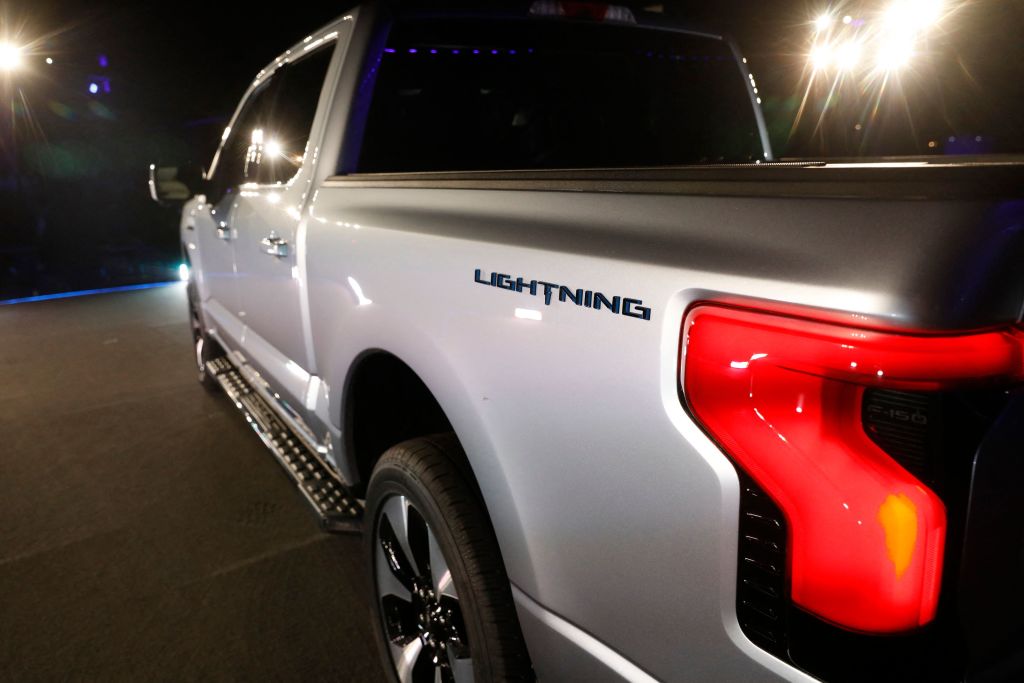A month or two ago I had to replace my car. I bought a 2019 Ford F-150 XL with slightly higher-than-average mileage for its age and an impeccable service record. The truck is in great shape, and, supply chains being what they are in 2022, I paid more than I wanted to for it.
It still cost less than a replacement battery for an electric vehicle.
OK, maybe not every replacement battery for every electric vehicle — but Tim Edterdahl of “Pickup Truck Plus SUV Talk” fame looked into the costs of battery replacements for an F-150 Lightning, which he’d been driving for a week to review, and he found some pretty startling numbers.
There are two possible batteries for the Lightning, the standard, designed to give the driver about 230 miles of range, and the extended range version, which increases that to about 300 miles, Esterdahl said.
Esterdahl is clearly the kind of guy who wants to get the bad news out of the way first, as he showed a screen shot of the price for the extended range battery to start.
It was $35,960.
That’s not a typo; the decimal point is in the right place. If you’re first thought was, “That’s more than I paid for my whole car!” you’re not alone.
Esterdahl said that was for the battery only, though he estimated that labor to install it would be “fairly inexpensive.”
If that seems high, you could always opt for the standard range battery for a mere $28,556.47. (I bet the dealership would spot you that 47 cents if you asked really nicely.)
For comparison, the Platinum edition of the F-150 Lightning Esterdahl had been driving all week retails around $96,000. Add the cost of a replacement battery to that, and you’re well into six figures.
But “hold on a minute,” Esterdahl said.
“Why are we caught up in this idea that the battery is going to fail? I think I’m hearing that time and time again,” he said. “Hey, did you cellphone battery fail? Did you computer battery just fail?”
“Could a battery just die?” he asked. “Yeah. Could a new Ford F-150 truck engine just die? Yeah. They both could die.”
Esterdahl used Tesla and the Chevrolet Bolt as examples of how batteries can degrade over time, since both of those vehicles have been on the road long enough now to have something of a track record to go by.
Citing an online report from Autoweek, Esterdahl argued that batteries will degrade at at rate of 2 to 3 percent annually — more often if the owner fast-charges often. Treat the battery poorly and it’ll degrade faster, Esterdahl said, just like any other piece of equipment.
He cited another video blogger who treated his EV’s battery poorly and now gets about 270 miles of range from it instead of the 320 he started with.
You can watch his entire video here:
[firefly_embed]
[/firefly_embed]
Esterdahl also read from Ford’s warranty that the battery in the Lightning would be covered by warranty for the first eight years or 100,000 miles, saying that he expected replacement batteries would be significantly less expensive by then. And because of improvements in technology, that theoretical replacement battery you buy on your own dime in, say, 2030 after your warranty is up, could charge faster, last longer and offer more range.
“You gotta keep all this stuff in perspective,” he said.
This article appeared originally on The Western Journal.

























 Continue with Google
Continue with Google